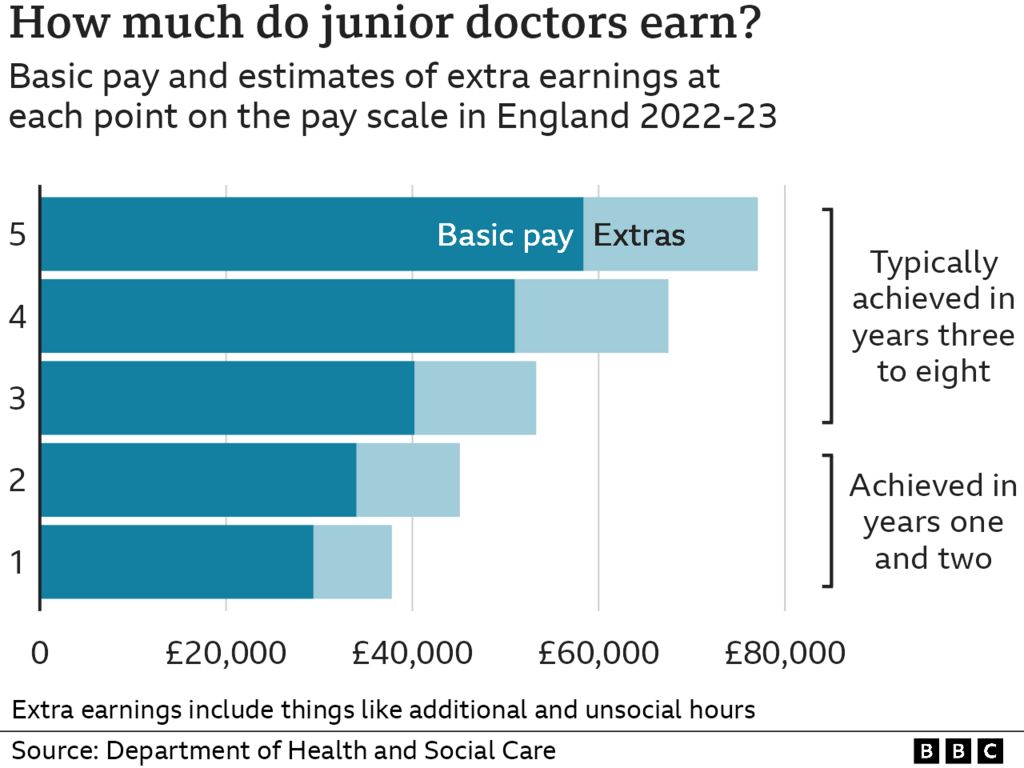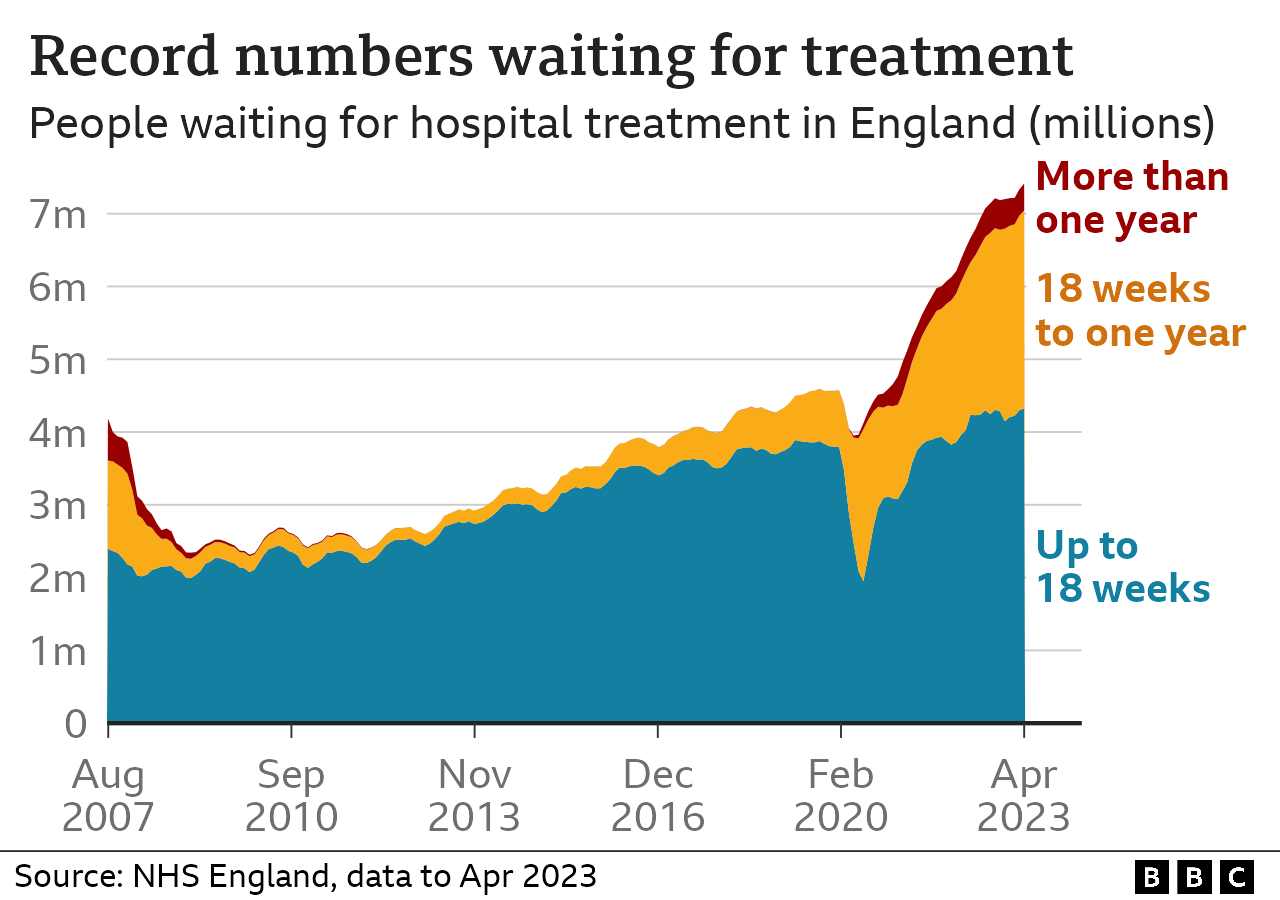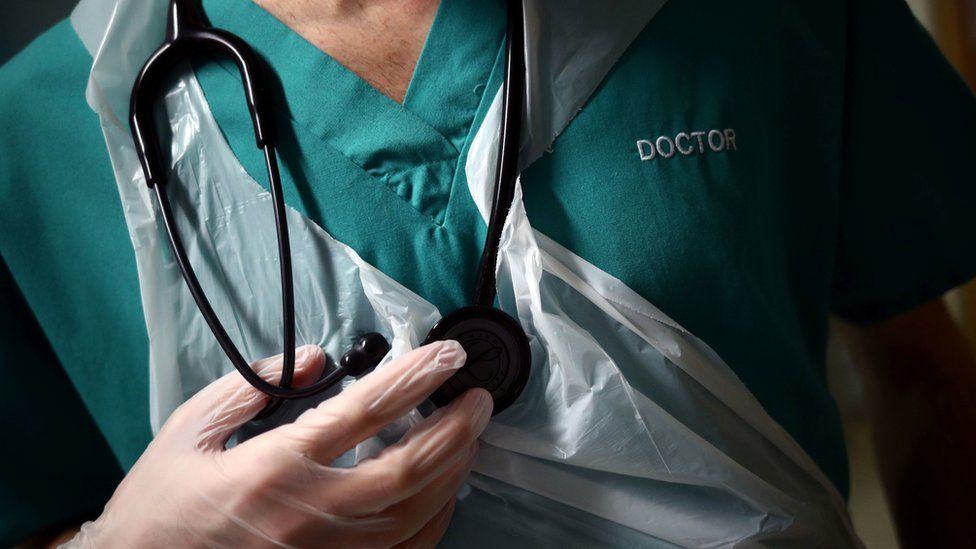As the hot weather and the most recent junior-doctors' strike coincide, health officials are warning of severe disruption and pressure on the NHS in England.
From Wednesday morning at 7:00, members of the British Medical Association will go on strike for 72 hours.
It is the third strike in the pay dispute, and many routine medical procedures are anticipated to be postponed as a result.
Additionally, bosses urged people to use services responsibly because the heat was putting an additional strain on accident and emergency units.
Junior physicians, who make up almost half of the medical workforce, will refuse to provide both routine and emergency care.
According to NHS England, the healthcare system must give emergency and life-saving care top priority. People should avoid the sun during the hottest part of the day and drink lots of fluids as the hot weather was already causing a high demand for urgent services.
Along with an increase in heart failure, kidney issues, sprains, fractures, and respiratory issues, hot weather also brings an increased risk of heat-stroke.

Although consultants are being brought in to cover for the junior doctors on strike, their number may be less than it was in March and April.
A particular challenge this time, according to Rory Deighton of the NHS Confederation, which represents health bosses, was "securing the level of consultant cover" because of the amount consultants were asking for overtime payments, which made it uncertain how many appointments would need to be postponed.
Around 196,000 hospital appointments and treatments were postponed during the four-day walkout in April. And the hospital waiting list, which has been expanding since the pandemic began, has now surpassed a record 7.4 million people.
"Each wave of strikes erodes the NHS's resilience, impacting staff, internal relationships, and their ability to carry out government commitments to reduce the elective backlog," Mr. Deighton said.
Prof. Stephen Powis, medical director of NHS England, predicted that the strike would have an "enormous impact.".
With a three-day strike that is expected to be made worse by the ongoing heat, he said, "the NHS is facing significant disruption this week.".
"Emergency, urgent, and critical care will be given priority this week, but some patients will regrettably have had their appointments postponed. If you haven't been contacted to reschedule, please do go to your scheduled appointment," the statement reads.
Use NHS 111 online for all other health conditions and 999 and A&E for life-threatening emergencies, as usual. ".
The majority of the disruption is anticipated to affect hospitals, but community services, such as GPs, will be significantly less impacted.
Dr. Tom Corkery-Bennett, in his second year out of medical school, works an average of 48 hours per week in the Royal Berkshire Hospital's A&E but can put in up to 60. He frequently gets messages asking if he can take on extra shifts.
The 26-year-old claimed that the "grossly unfair" changes to pay were a significant contributor to the staffing shortages.
The staffing levels are skeletal, and the system's resilience is extremely low, according to Dr. Corkery-Bennett.
There are frequently instances where doctors call in sick for a night shift without a replacement.
The quality of care is seriously jeopardized because there are many patients who lack access to doctors. .
If a contingency plan is not in place, which frequently occurs, one doctor will cover the duties of two or three doctors, which is unsafe. ".

To make up for 15 years of pay increases below inflation, junior doctors want a 35 percent pay increase.
In negotiations last month, the government proposed an additional 5%, which Health Secretary Steve Barclay described as "fair and reasonable" and added that the "extremely disappointing" walkout would endanger patients.
However, given that inflation has reached double digits this year, BMA junior doctor leader Dr. Vivek Trivedi said the offer "beggars belief.".
The government's refusal to listen, according to Dr. Trivedi, has junior physicians in despair.
"We have made it clear that junior doctors want our pay in its entirety restored.
"A properly valued workforce is a requirement for the NHS to operate. ".
This strike only affects services in England, but junior doctors in Scotland have announced this week that they will also be on strike as a result of a BMA member vote.
Additionally, a ballot for a consultants' strike is being held in England. The Royal College of Nursing's members are also voting on whether to continue their industrial action after joining the small group of health unions that rejected the government's offer of 5% plus a one-time payment of at least £1,655.







